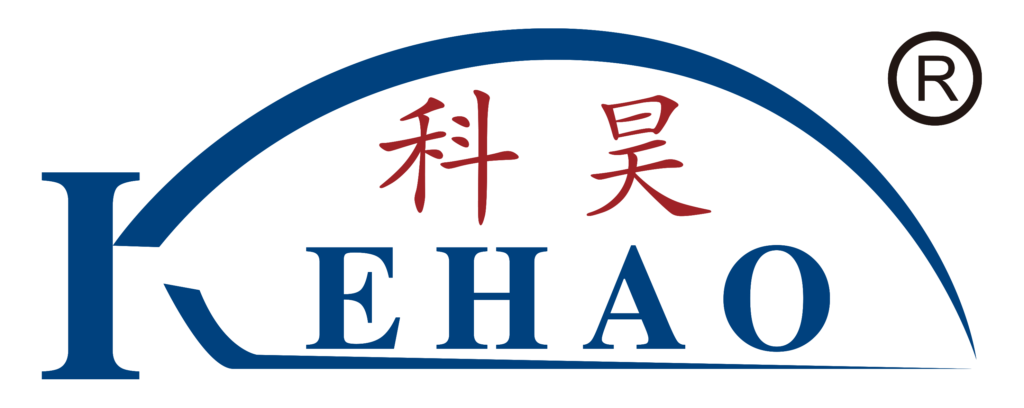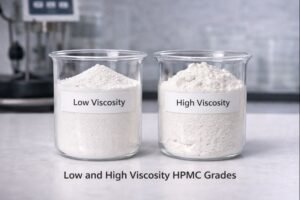Are you struggling with finding the right additive for your products? Many manufacturers face challenges when selecting stabilizers and thickeners that deliver consistent results without compromising quality. Sodium carboxymethyl cellulose1 (CMC) might be your solution.
Sodium carboxymethyl cellulose1 is a versatile cellulose derivative used as a thickener, stabilizer, and binder in various industries. It's water-soluble, non-toxic, and provides excellent viscosity control in applications ranging from food products to pharmaceuticals, cosmetics, and industrial formulations.

As a leading manufacturer with six production lines, I've seen firsthand how the right CMC can transform product performance. Our customers across Saudi Arabia, UAE, and other markets regularly share success stories after switching to our high-quality CMC. Let me walk you through everything you need to know about this remarkable additive.
What is carboxymethyl sodium cellulose used for?
Have you been searching for a multifunctional additive that solves multiple formulation problems at once? Many of my clients struggled with this exact issue before discovering CMC's versatility and effectiveness.
Carboxymethyl sodium cellulose functions as a thickener, stabilizer, water retention agent, and binder in numerous applications. It prevents phase separation, controls viscosity, improves texture, and enhances product stability across food, pharmaceutical, cosmetic, construction, textile, paper, and detergent industries.

The remarkable versatility of CMC comes from its unique chemical structure. As a cellulose derivative, it consists of a cellulose backbone with carboxymethyl groups attached through an ether linkage. This structure gives CMC its characteristic water solubility and thickening properties.
Different Grades for Different Needs
One of the most important things I explain to new clients is that not all CMC is created equal. The functionality depends heavily on the grade specifications:
| Grade | Viscosity | Substitution Degree | Best Applications |
|---|---|---|---|
| Food Grade | Medium to High | 0.65-0.90 | Ice cream, bakery, dairy products |
| Pharmaceutical | High Purity | 0.70-0.95 | Tablets, oral solutions, ointments |
| Technical Grade | Variable | 0.50-0.80 | Construction, textiles, detergents2 |
| Oil Drilling | High | 0.80-1.20 | Drilling fluids, enhanced oil recovery |
In our factory, we customize the properties by controlling the substitution process. The degree of substitution (DS) directly impacts the CMC's solubility, viscosity, and stability. For clients needing specific performance characteristics, we can tailor the DS to achieve optimal results in their applications.
What are the applications of CMC?
Do you find your products lacking the stability or texture you desire? Many manufacturers I work with faced these challenges before incorporating CMC into their formulations, unsure if one additive could address all their needs.
CMC has extensive applications spanning multiple industries. In food, it stabilizes ice cream and bakery products. In pharmaceuticals, it acts as a tablet binder and disintegrant. Construction materials use CMC for improved workability, while textile industries apply it for sizing. It's also crucial in detergents, ceramics, and paper manufacturing.

The widespread adoption of CMC across diverse industries is a testament to its exceptional performance characteristics. I've worked with clients across continents who've successfully implemented CMC in their formulations, each with unique requirements and challenges.
Industry-Specific Benefits
From my experience supplying CMC to various sectors, I've observed how it addresses specific needs in each application:
In construction materials3, CMC significantly improves water retention in mortars and plasters. This prevents rapid drying and enhances workability—critical for applications in hot climates like Saudi Arabia and UAE. One of our clients in Dubai reported a 40% improvement in open time after incorporating our CMC into their tile adhesive formulation.
For food applications, the stabilizing effect is remarkable. CMC prevents ice crystal formation in frozen desserts, maintains uniform texture in bakery fillings, and provides the perfect mouthfeel in dairy products. The non-caloric nature makes it particularly valuable in reduced-calorie foods.
In the pharmaceutical industry, the binding properties of CMC are essential for tablet formulations. Additionally, its film-forming capabilities are utilized in coatings for timed-release medications.
The textile industry leverages CMC's excellent adhesion properties for sizing agents, providing fabric strength during weaving while being easily removable in subsequent processing steps.
What is sodium carboxymethyl cellulose used for in food?
Are you concerned about maintaining food quality while extending shelf life? Food manufacturers often struggle to find additives that improve texture without compromising flavor or adding unwanted ingredients to their labels.
In food, sodium carboxymethyl cellulose serves as a stabilizer in ice cream to prevent ice crystal formation, provides moisture retention in bakery products, improves mouthfeel in dairy products, thickens sauces and dressings, and acts as a fat replacer in low-calorie foods, all while carrying E466 designation as a safe food additive.

The food industry represents one of the largest markets for CMC, and my experience with food producers has shown why. The stabilizing and thickening properties create remarkable texture improvements that consumers notice immediately.
Critical Food Applications
Through my work with food manufacturers across different regions, I've seen CMC transform products in several key categories:
In ice cream and frozen desserts, CMC prevents the formation of large ice crystals during freezing and thaw cycles. This results in a smoother, creamier texture that maintains quality even through temperature fluctuations during distribution. A major ice cream producer in the Middle East switched to our CMC and reported customer satisfaction scores increasing by 18%.
Bakery applications benefit from CMC's water retention properties. By holding moisture in the product matrix, it extends freshness and prevents staling. This is particularly valuable for products shipped to regions with longer distribution chains or challenging climate conditions.
Dairy products like yogurt and cheese spreads achieve ideal consistency and mouthfeel with precise CMC additions. The pseudoplastic flow behavior (thinning under shear stress) creates the perfect sensory experience—thick at rest but flowing smoothly when poured or spread.
Low-calorie and reduced-fat foods use CMC to replace some of the textural properties normally provided by fats. This allows manufacturers to reduce caloric content while maintaining the satisfying mouthfeel consumers expect. The neutral taste profile means it doesn't interfere with flavor systems.
Beverage stabilization is another crucial application, where CMC prevents sedimentation in fruit juices and maintains homogeneity in plant-based milk alternatives.
What is the market for sodium carboxymethyl cellulose?
Are you wondering about the investment potential in CMC or concerned about supply stability? Many buyers want assurance about market trends before committing to specific ingredients or suppliers.
The global sodium carboxymethyl cellulose market is experiencing steady growth, valued at approximately $1.7 billion with projected CAGR of 4.5% through 2028. Growth drivers include increasing demand in food, pharmaceuticals, and personal care products, alongside expanding applications in oil drilling4 and construction materials3, particularly in developing markets.

As someone who has been in the CMC business for years, I've witnessed the market evolution firsthand. The demand patterns have shifted and diversified, creating both challenges and opportunities for manufacturers and end-users alike.
Market Dynamics and Regional Trends
The CMC market has distinctive regional characteristics that influence purchasing decisions and supply strategies. From my experience working with international clients:
Asia-Pacific represents the fastest-growing market segment, driven by rapid industrialization in countries like India and Vietnam. The construction boom in these regions creates substantial demand for CMC in building materials. Our sales to the Asian market have grown by approximately 22% annually over the past three years, reflecting this trend.
Middle Eastern markets show strong demand for high-purity grades used in oil drilling applications. The extreme temperature conditions in these regions require specially formulated CMC with enhanced thermal stability, which commands premium pricing. Our specialized drilling-grade CMC has become one of our highest-margin products for this reason.
North American and European markets are increasingly focused on pharmaceutical and food-grade CMC with stringent purity requirements. These markets typically demand extensive documentation, certifications, and consistency batch after batch.
Supply chain considerations have become increasingly important, especially after recent global disruptions. Many buyers now prioritize suppliers with multiple production lines and robust logistics networks—precisely the infrastructure we've developed at our factory to ensure uninterrupted supply.
The pricing structure in the market correlates strongly with purity levels and specific application optimization. Technical grades used in construction typically cost 15-25% less than food-grade CMC, while pharmaceutical grades command premiums of 30-50% over standard food grades.
Conclusion
Sodium carboxymethyl cellulose1 is an incredibly versatile additive that solves critical challenges across multiple industries. From food to pharmaceuticals to construction, CMC delivers reliable performance with excellent safety profiles. For quality and consistency, choose a reputable supplier with proven manufacturing capabilities.
-
Explore how Sodium carboxymethyl cellulose enhances product quality across multiple sectors. ↩ ↩ ↩
-
Understand how CMC contributes to the effectiveness of cleaning products. ↩
-
Learn how CMC enhances the performance of construction materials. ↩ ↩
-
Discover the unique applications of CMC in the oil and gas industry. ↩







